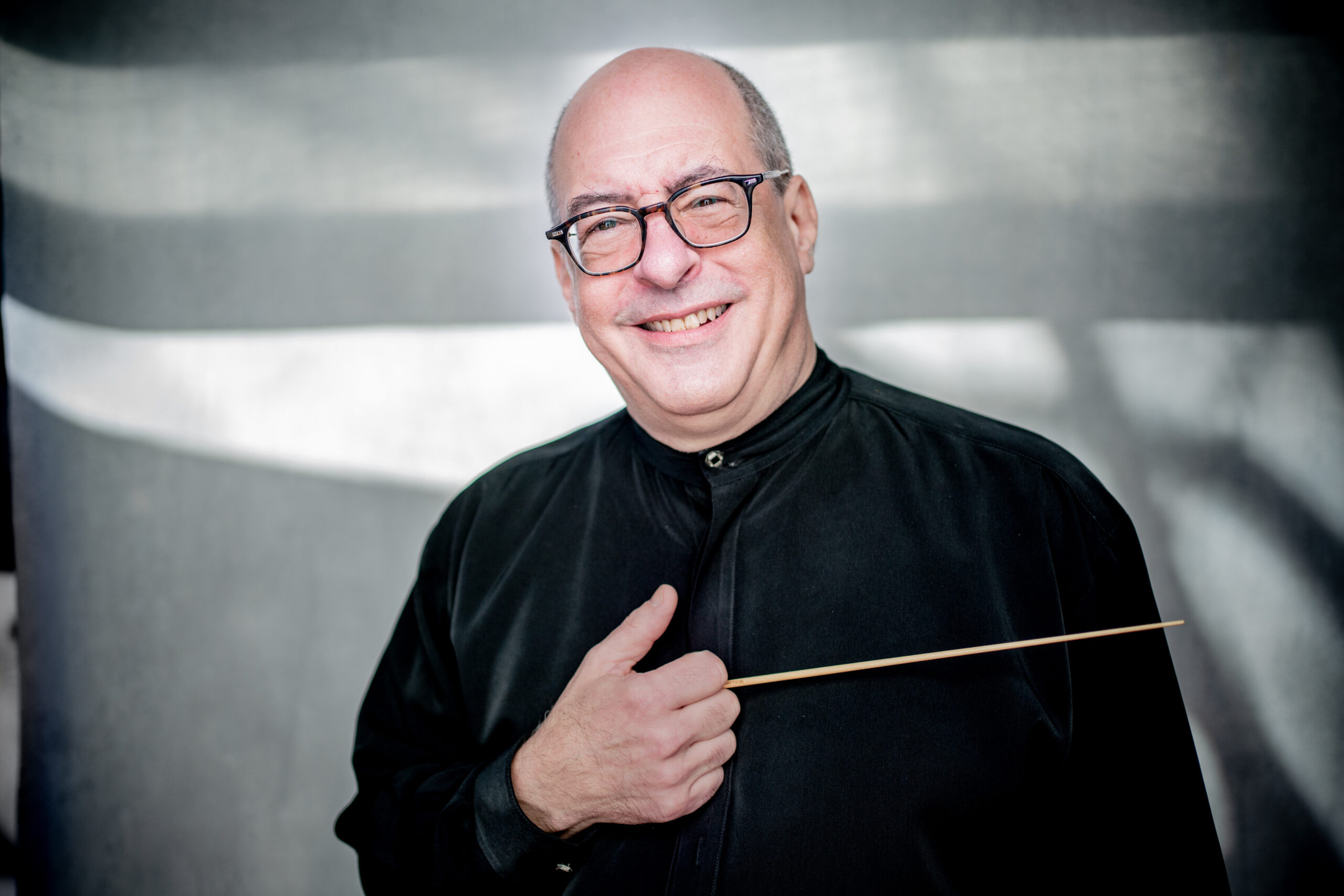Conductor Robert Spano Discusses The Atlanta Symphony Orchestra’s Return To The Stage With Beethoven’s Fifth

Robert Spano is music director of the Atlanta Symphony Orchestra.
Jason Thrasher
Atlanta Symphony Orchestra returns to live performance this weekend in Symphony Hall, presenting a joyous selection of works by Beethoven. Conductor Robert Spano, the ASO Music Director Laureate, joined “City Lights” host Lois Reitzes to share his admiration for the great composer, and thoughts on why Beethoven’s music was perfect for celebrating a return to the stage.
Beginning this Thursday, Symphony No. 5 and Piano Concerto No. 5, or the “Emperor” Concerto, will “blow the door off Symphony Hall,” according to the ASO website. “I think it was as simple a thought as wanting to do the most symbolic, iconic, fundamental cornerstone repertoire that identifies who we are imaginable, and that’s Beethoven,” said Spano. “And it’s certainly both ‘fives,’ the Fifth Symphony and the Piano Concerto.”
Everyone would recognize the Fifth Symphony by its thunderous, unforgettable first four notes. The Orchestra handling this magnificent outburst will be accompanied by the great pianist and long-time friend of ASO Garrick Ohlsson. “He’s such a giant of a musician,” Spano said. “He’s the kind of soloist who brings a depth of understanding of the music that’s far beyond the concerns of playing the piano. He brings a sensibility when he’s playing a concerto that includes everything the orchestra’s doing, that includes a rich, deep understanding and relationship to the music of the composer. He’s an extraordinary artist.”
Legend has it that Beethoven himself once said that the first four notes symbolized “fate knocking at the door.” Spano approved the metaphor, saying, “It’s incredibly beautiful, the tapestry of free will and fate, our relationship to destiny and our freedom of choice in relation to destiny. The Symphony grapples with all of those mysteries so beautifully.”
The conductor knows Beethoven’s work intimately enough to offer a studied evaluation of the great composer’s strengths and weaknesses. “He’s not the greatest writer of melodies in the world, he’s not the greatest contrapuntist in the world, he’s not the greatest orchestrator in the world,” said Spano. “How does he achieve such enduring results, that we gravitate to the greatness of the message after all this time? And I think it’s that uncanny gift of creating something that has such strong character and profile and message that is unmistakable, and we can’t forget it. It sticks.”
It’s all the more astonishing that Beethoven created such memorable and affecting music, given the hearing loss that progressed throughout his life until he was deaf. “What a strange fact of musical history, of human history, that this greatest of composers lost the sense that links to his art,” Spano said. “Knowing how difficult his life was, knowing what grief he faced, and what personal trials he had to overcome, there must be something about that quality of optimism, that quality of hope, that keeps us listening to him over all these centuries now.”
Spano hopes that these compositions, representing such improbable triumph, will inspire Symphony Hall’s audiences after the long and difficult periods of isolation felt by so many. “The return to the Hall, the fact that we’ll be together in the Hall again — it just felt right to do something so familiar and so great, so transcendental,” he said.
The Atlanta Symphony Orchestra performs Beethoven this weekend, Sept. 9-11. More information and tickets are available at www.aso.org/events/detail/opening-weekend-beethoven-fifth.





